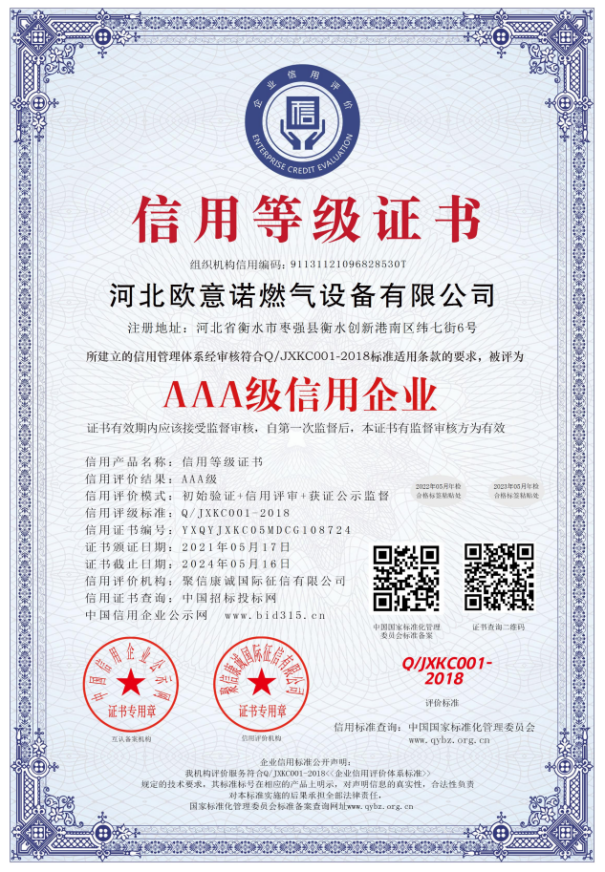
Aug . 15, 2024 17:48
Back to list
Creating a Unique Filter Separator for Enhanced Data Processing and Management Techniques
Understanding Filter Separators Essential Components in Industrial Applications
Filter separators play a crucial role in various industrial applications, particularly in the oil and gas sector, where the separation of liquids and solids from gases is essential. They are designed to remove unwanted contaminants from the process stream, ensuring that the quality of the product is maintained and equipment is protected. This article explores the working principle, types, advantages, and applications of filter separators.
Working Principle
At its core, a filter separator combines two essential processes filtration and separation. The primary goal is to separate entrained liquids and particulate matter from a gas stream. The gas enters the filter separator, where it first passes through a filter media that captures solid particles. This is often followed by a coalescing phase, where small droplets of liquid combine to form larger droplets that can be more easily removed.
The separation phase utilizes the principle of gravity; due to differences in density, the liquid droplets fall to the bottom of the separator, while the cleaned gas exits from the top. This dual-action mechanism of filtration and gravity separation ensures high efficiency in contaminant removal.
Types of Filter Separators
Filter separators come in various designs, tailored to specific industrial needs. The most common types include
1. Coalescing Filter Separators These units are primarily used in gas processing. They employ filter elements that coalesce small droplets into larger ones, enhancing the efficiency of liquid removal. 2. Vessel Type Filter Separators These are large cylindrical vessels that allow for the gravitational settling of liquids. They are ideal for handling high volumes of gas and liquid.
3. Inline Filter Separators Compact designs that can be installed in pipelines. They are used for on-the-go separation in systems where space is limited.
4. Multi-stage Filter Separators These systems employ several stages of filtration and separation, providing even greater efficiency in cleaning the gas stream.
filter separator

Advantages of Filter Separators
Filter separators offer numerous advantages across different industrial applications
- Enhanced Efficiency By combining filtration and separation processes, these units can significantly reduce the amount of liquid and particulate matter exiting into the system, leading to cleaner end products. - Protection of Equipment Regular use of filter separators protects downstream equipment from damage caused by liquid contaminants, thereby reducing maintenance costs and downtime.
- Improved Product Quality In industries where product purity is paramount, such as pharmaceuticals and food processing, filter separators ensure that the final product is free from unwanted contaminants.
- Adaptability Filter separators can be customized to meet specific process requirements, making them versatile tools in various settings.
Applications
The applications of filter separators are vast and varied. In the oil and gas industry, they are crucial for removing water and solid contaminants from gas streams before they enter compressors and pipelines. In processing plants, they ensure that products are free from foreign particles, enhancing quality control.
In the food and beverage sector, filter separators help maintain hygiene standards by removing impurities from liquids, ensuring that the final products meet health regulations. Furthermore, in chemical manufacturing, these devices play a key role in maintaining process efficiency by removing unwanted materials from process streams.
Conclusion
Filter separators are indispensable in maintaining the integrity and efficiency of industrial processes. Their ability to effectively remove liquid and solid contaminants from gas streams ensures that high-quality products are achieved while protecting equipment from potential damage. As industries continue to evolve, the importance of filter separators will only increase, underscoring their value in a wide range of applications.
Latest news
-
Safety Valve Spring-Loaded Design Overpressure ProtectionNewsJul.25,2025
-
Precision Voltage Regulator AC5 Accuracy Grade PerformanceNewsJul.25,2025
-
Natural Gas Pressure Regulating Skid Industrial Pipeline ApplicationsNewsJul.25,2025
-
Natural Gas Filter Stainless Steel Mesh Element DesignNewsJul.25,2025
-
Gas Pressure Regulator Valve Direct-Acting Spring-Loaded DesignNewsJul.25,2025
-
Decompression Equipment Multi-Stage Heat Exchange System DesignNewsJul.25,2025

